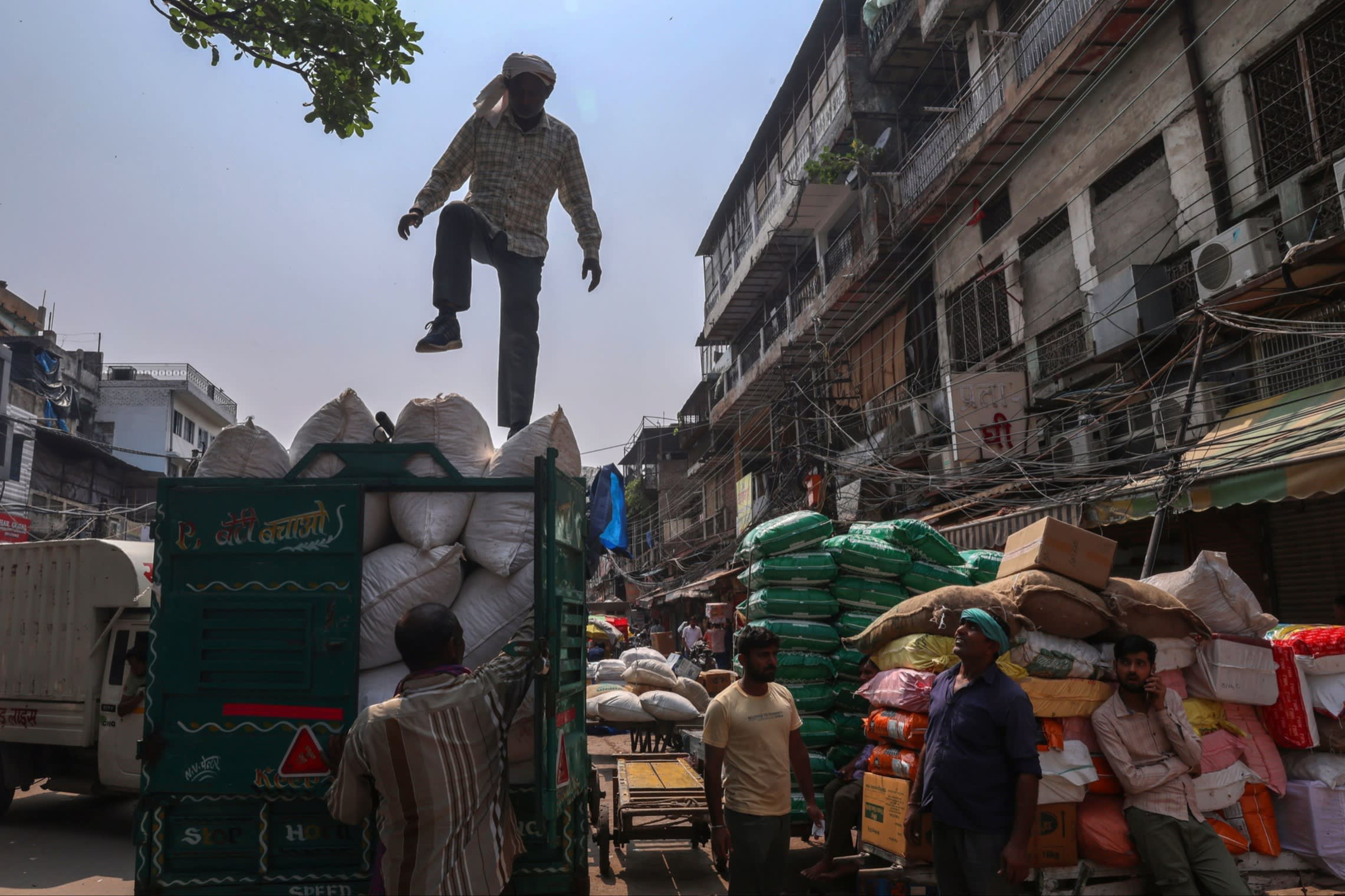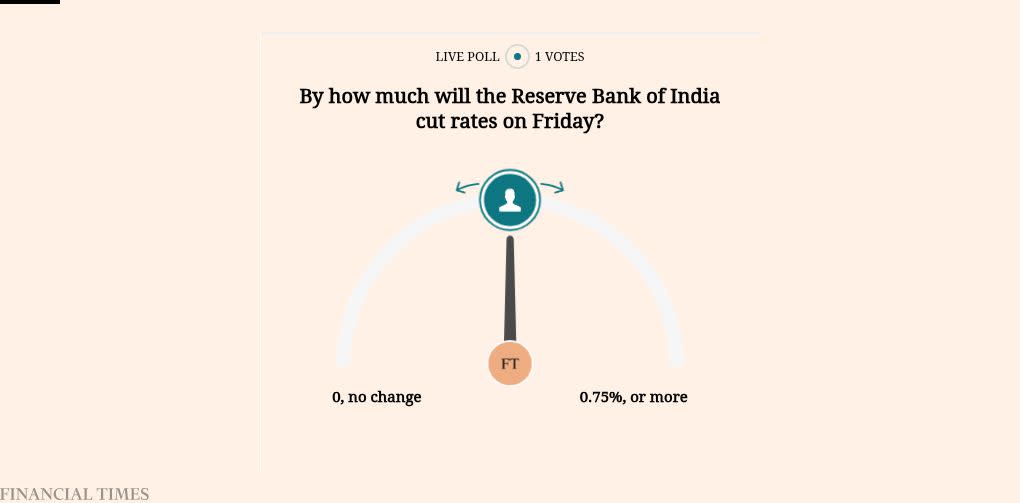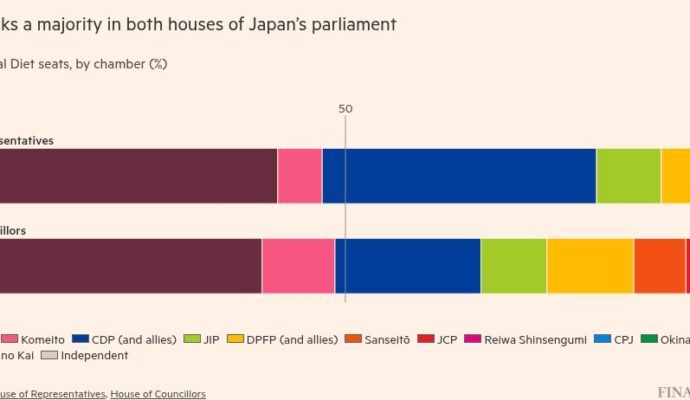Good morning. It’s a feel good week in India, when everything looks golden. GDP is up, rains are here, chess champion Gukesh Dommaraju beat Magnus Carlsen again. (Yes, I know Trump will probably do something to jinx it, but let’s enjoy it while it lasts).
In today’s newsletter: the ducks are in a row for a rate cut later this week. But first, Indian aviation is shedding all things Turkey.
Going cold Turkey
The business impact of Operation Sindoor continues as India expands its actions against Turkish companies in the aviation sector, after cancelling Turkish ground management provider Çelebi’s security clearance last month (as reported in this newsletter).
Low-cost airline IndiGo has been instructed to terminate its leasing agreement with Turkish Airlines by August 31. Last month it had sought permission from the government to extend its “damp lease” with Turkey’s flag carrier, which means the latter provides, flies and maintains aircraft that are staffed by IndiGo cabin crew. The Indian company had asked for a six-month extension for two wide-body jets, but was only granted a “one-time last and final extension” of three months.
Even though it has not commented on the matter, IndiGo seems to be actively reducing its engagement with Turkish Airlines. The two companies still have a code share arrangement for flights from India to Europe and America — at least for now. But IndiGo has in the meantime announced a partnership with Air France-KLM, Delta and Virgin Atlantic to provide more coverage on these routes, and also ordered 30 more wide-body aircraft with Airbus, doubling its original order size.
Rival Air India is seeking a replacement for its aircraft maintenance provider, Turkish Technic — not something that can be found easily, as Air India chief executive Campbell Wilson told local media. But he said his company was cognisant of public opinion on the matter of corporate partnerships with Turkish groups after Ankara’s support of Pakistan during the military escalation last month. Because India does not have enough capacity to maintain the company’s entire wide-body fleet, the airline also has partnerships in other places including Singapore and Abu Dhabi, as well as Turkey. Wilson did not mention a timeline for replacement.
Meanwhile, Çelebi’s case claiming wrongful termination is now winding its way through three courts. In an early setback for the company, the courts did not allow a “stay” in the cancellation, which means Çelebi cannot handle airport operations until a judgment is passed in its favour.
Taken together, these moves in the aviation sector have established that India is unafraid to use access to its huge market to punish companies for the geopolitical alliances of their governments. (Aside, I did not know there was so much Turkish involvement in Indian aviation.) For local airlines, this means any alliance with a global player now comes with the risk of disruptions induced by geopolitical tensions. Conditions are ripe for Indian companies to expand their scope and build capacity in these areas. If an Indian business could take over ground handling overnight, as was the case after Çelebi had its clearance revoked, then there is no reason for a foreign operator in the first place.
Do you think India will be able to run all airport operations without foreign collaborations? Hit reply or email me at indiabrief@ft.com
Recommended stories
Ukraine and Russia remain far apart on terms for a lasting ceasefire after a second round of peace talks in Istanbul.
The dollar’s correlation with Treasury yields is breaking down.
The RBS story: how the world’s biggest bank was nationalised and then reborn.
An Indian tech fund sees a domestic opportunity akin to 1990s Silicon Valley.
Can the Gulf become an AI superpower?
The five best Dubai chocolates available (almost) everywhere. (I love these crunchy, creamy, pistachio-filled delights, but they are so pricey!)
Ducks in a row

The (economic) signs are good. GDP data came in late Friday evening, and blew past most estimates. The Indian economy grew 7.4 per cent during the January to March period, up from 6.4 per cent the previous quarter. Provisional official estimates of GDP growth for the entire fiscal year suggest India grew only 6.5 per cent this year, down from 9.2 per cent the year before. All the bad news that consumer-facing companies were reporting, especially in the first half of the fiscal year, were real. But, for now, it looks like we have turned a corner.
Tax revenue figures, which came out over the weekend, mirror this uptick in economic activity. For a second month, the goods and services tax collection was firmly above the Rs2tn ($24bn) mark, increasing 16.4 per cent from the record levels reported in April. Overall, monthly GST collections increased by around 10-11 per cent in the last fiscal year. However, here too there is a caveat. The growth in May is largely import driven, and not from domestic consumption. While gross revenue from domestic transactions grew 14 per cent, that from imports was substantially higher at 25 per cent.
This growth momentum adds to the good news about the monsoons this year, which are early and expected to be ample. With more than 40 per cent of Indians working in agriculture, a good monsoon will give a further lift to an already-buoyant rural economy. This is a great backdrop for the central bank’s monetary policy committee meeting later this week. Expectations are that it will go in for a hat-trick and cut rates for the third consecutive time since February, giving a further boost to consumption.
Only the stock market seemed unimpressed. The benchmark indices started trade on Monday down 0.75 per cent, and closed flat at -0.14 per cent.
Go figure
The global steel industry is reeling after Trump announced plans to double tariffs for the sector. Here’s a quick look.
50%
New tariff
25%
Old tariff
$4.56bn
India’s export to US
My mantra
“I don’t believe I need to do everything. Delegating empowers the team so we move faster, smarter and are able to execute quicker. Most importantly, it helps identify the next leaders.”
Andrew Holland, head, new asset class, Nippon India MF

Each week, we invite a successful business leader to tell us their mantra for work and life. Want to know what your boss is thinking? Nominate them by replying to indiabrief@ft.com
Quick question
By how much do you think the Reserve Bank of India will cut rates on Friday? Take part in our poll below, or click here.
Buzzer round
On Friday, we asked: What connects Spazl, Ptitim, Paccheri and Testaroli?
The answer is that they are all types of pasta.
Aniruddha Dutta is our winner this week, followed by Yaman Singhania and Sushant Jain. Congratulations!
Thank you for reading. India Business Briefing is edited by Tee Zhuo. Please send feedback, suggestions (and gossip) to indiabrief@ft.com.



